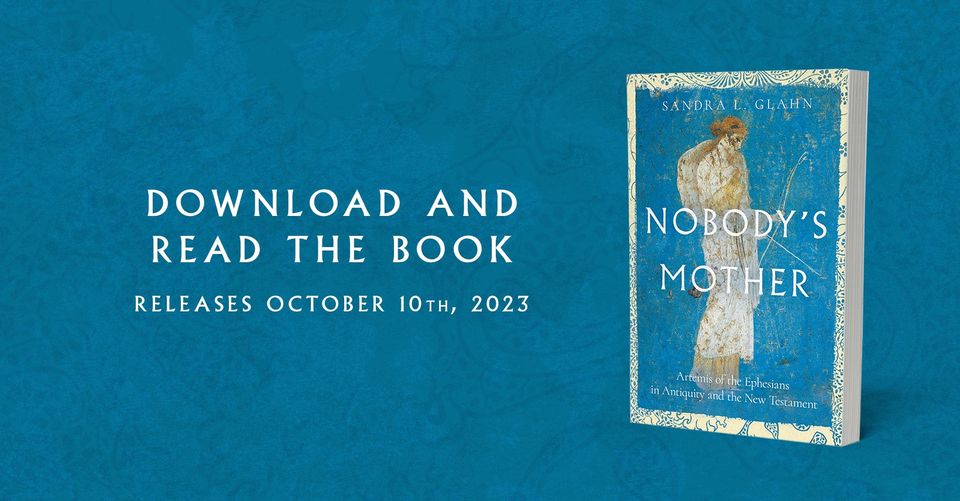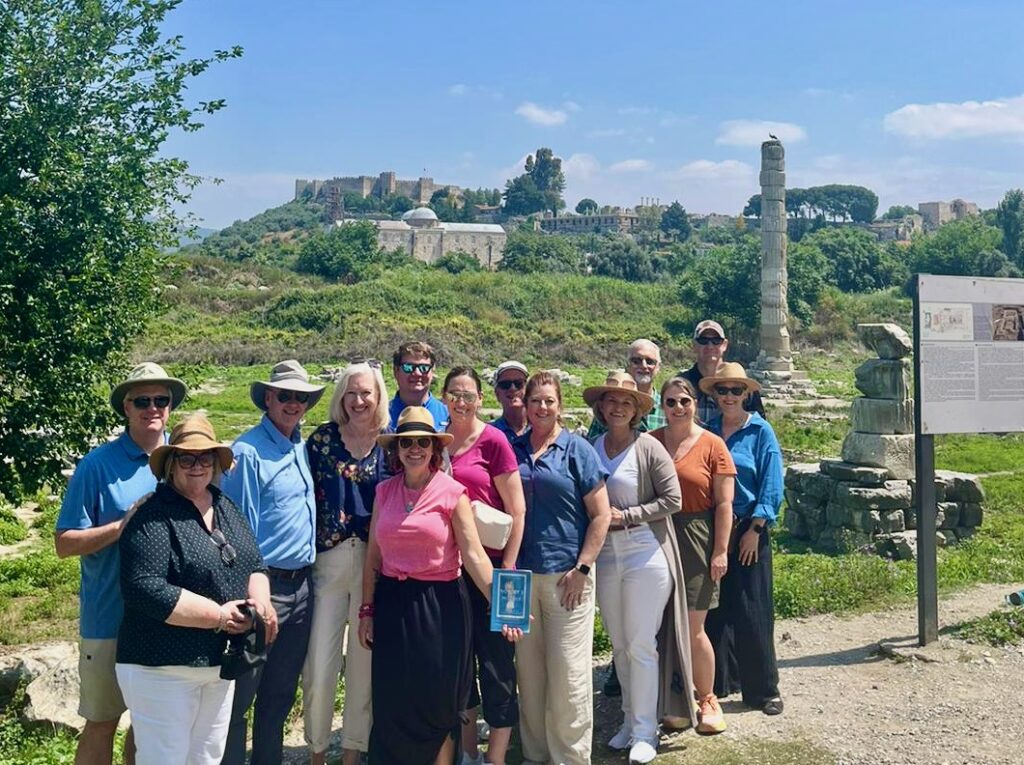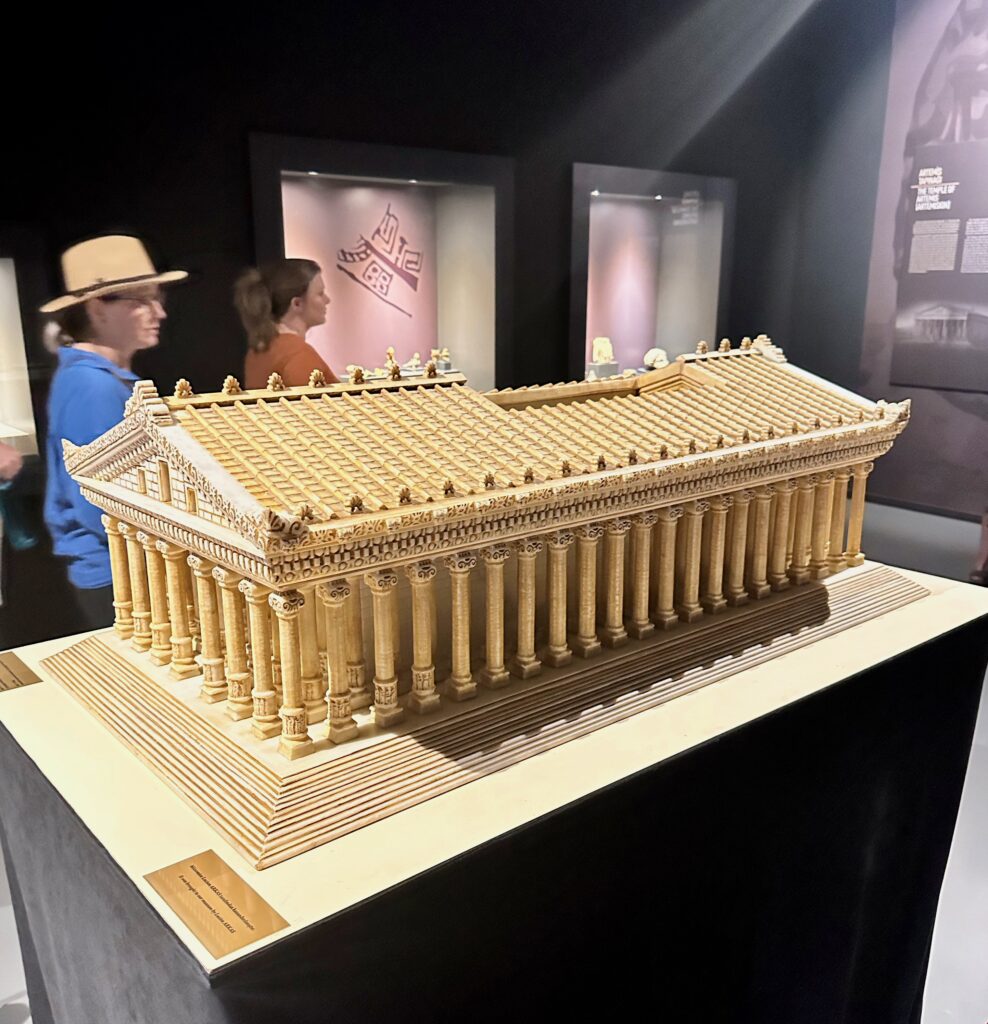
Book Review: Nobody’s Mother: Artemis of the Ephesians in Antiquity and the New Testament
In a lecture on the book of Ephesians, one of my seminary professors described Artemis of the Ephesians as a goddess of fertility. Except she wasn’t. Artemis, whose temple was one of the Seven Wonders of the Ancient World, was “nobody’s mother.”
Top New Release: Nobody’s Mother
Sandra Glahn’s groundbreaking historical research in her new book (released today) Nobody’s Mother: Artemis of the Ephesians in Antiquity and the New Testament, unveils an accurate depiction of the goddess Artemis, her cult, and how this context provides interpretative clarity for Paul’s writing in 1 Timothy, and specifically 1 Timothy 2:15 “she will be saved through childbearing.” Nobody’s Mother is currently the top new release in Gender & Sexuality in Religious Studies on Amazon.
Author, Sandra Glahn
A professor at Dallas Theological Seminary for the past twenty-plus years and president of the EPA, the Christian media association, Glahn earned a PhD focused on first-century backgrounds and their connection to women, culture, and the arts. Building on her previous dissertation work, she mined new data from inscriptions, statues, art, and ancient writings about Artemis’s identity and the implications of this understanding on biblical interpretations. Glahn reminds the reader that context is vital to understanding the text. Therefore, one key to faithfully interpreting 1 Timothy is learning the who, what, and why of the goddess Artemis of the Ephesians and the intersection of her cult with Paul and the early Christians.
A Visit to Ancient Ephesus and the Temple of Artemis
I’ve enjoyed opportunities to sit under Glahn’s teaching in her courses on women, church history, art, and theology, including her immersive course in Italy. This past summer, some of Glahn’s current and former students, including my husband and I, vacationed with Glahn and her husband, Gary. We visited several ancient biblical sites in the Mediterranean, including the ruins of ancient Ephesus and the Temple of Artemis (near what is today Kuşadası, Turkey). Ephesus is described in Acts 19:35 as “the city of the Ephesians is the guardian of the temple of the great Artemis.” Ephesus was an important location in early Christianity and a city heavily influenced by the cult of Artemis. Glahn explores this background and its relationship to interpreting New Testament passages related to women and the church.

Amazon Women and Artemis’s Temple
At an ancient temple in Ephesus, Glahn pointed out a stone-carved relief depicting the story of Amazon women—warrior women from near the Black Sea—who founded Ephesus. For centuries, statues of Amazon women stood in Artemis’s temple, including one during Paul’s day. Perhaps one cultural factor influencing Paul’s directive to Timothy was the Amazon women. This fact led Glahn to question, “Did Paul have concerns about women that related to false teaching coming from worshipers of the goddess Artemis with an Amazon connection?”

Who Would Benefit from Reading Nobody’s Mother?
Who would benefit from reading Nobody’s Mother? Glahn asserts, “This book is for the reader who wants to avoid sacrificing a high view of Scripture while working to reconcile conflicting narratives about God’s view of women.” She continues, “The book is for the person who sees God giving spiritual gifts to women for the maturing of the body of Christ and has a hunch she’s supposed to use them far beyond the nuclear family, important as that is.”
Conclusion
Nobody’s Mother significantly contributes to New Testament backgrounds and clarifies several difficult-to-interpret biblical texts. Texts that are often used to limit women and their spiritual gifts. What you believe about women matters. I highly recommend you order your copy today!
~ Read my latest Engage at Bible.org blog post here.
~ Join the Waitlist for Theology of Women Academy®.
This piece may contain associate links. I’m appreciative, as always, for you to forward, share, or subscribe.